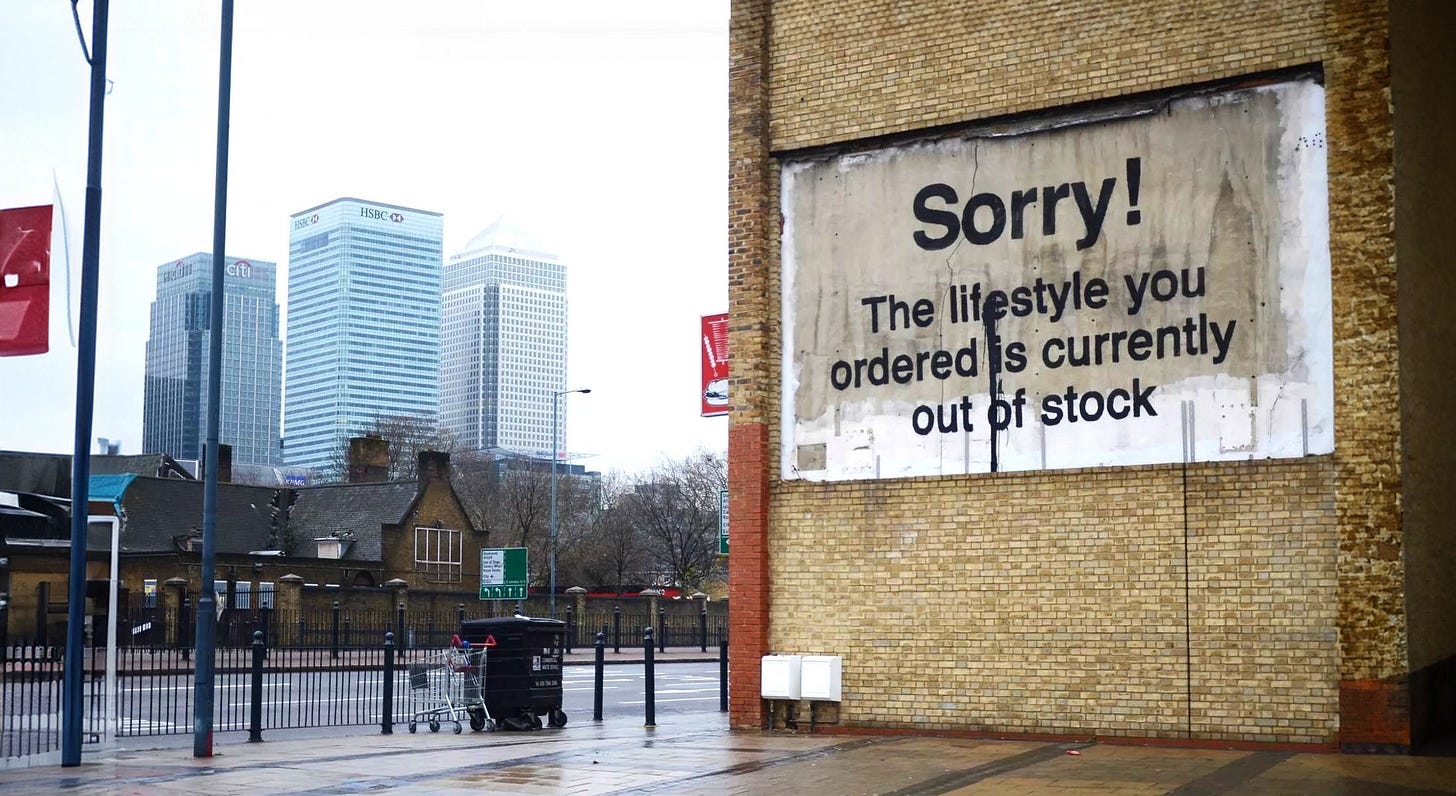Building on the message from David Bloom's thoughtful and insightful summary of 'desire-free relationship to objectively desirable things,' as written in the fashion-focused newsletter ‘Blackbird Spyplane’. This idea suggests a paradigm shift in our interaction with material possessions, echoing the experience of admiring art in museums without the urge to possess it. Applying this mindset broadly could revolutionise our consumer habits, potentially upending the capitalist framework that thrives on constant desire and acquisition.
Imagine applying this notion to the realm of creative leadership, trends, and culture. Leaders could advocate for and model a shift towards valuing experiences and ideas over physical objects, fostering a culture that prizes intellectual and emotional enrichment above material accumulation. This approach could lead to more sustainable practices across industries, as the drive for constant consumption diminishes.
In the context of fashion, where trends are ephemeral and consumption is high, embracing a desire-free relationship could lead to a more sustainable and ethical industry. It would encourage consumers to appreciate the craftsmanship and story behind each piece, rather than simply accumulating more items. Fashion brands could lead this change by focusing on timeless design, quality, and transparency about their manufacturing processes, aligning with the growing consumer interest in sustainability and ethical production.
This shift could also have profound implications for how we design and market products across all sectors. By emphasising the intrinsic value and lasting appeal of goods, companies could foster deeper connections with their customers, moving away from the disposable culture that dominates today's market. This would not only benefit the environment by reducing waste but also offer a more fulfilling and meaningful consumption experience to individuals.
So in today's creative landscape, the renaissance of the Arts and Crafts movement, combined with the drive for Remake, Reuse, Reduce, Renew and DIY culture, stands as a testament to the shifting sands in our relationship with the material world. Following a call with David and the rest of the Kouch Culture (KC is weekly virtual gathering of authenticators from around the globe) team, we chatted that this resurgence is more than a mere trend; it's a movement towards embracing creativity as a form of personal expression and mindfulness.
The Arts and Crafts movement,in the early 20th century, championed the importance of craftsmanship, the beauty of natural materials, and the value of design in everyday life. Today, we see its modern incarnation in the growing demand for arts and crafts supplies, fuelled by a community of consumers who find solace and satisfaction in the act of creation. This movement aligns with the ethos of fostering a desire-free relationship with desirable things, encouraging individuals to derive joy and fulfilment from the process of creation rather than the acquisition of goods.
The resurgence of today's Arts and Crafts, Artisanship, Make and Mend and the growing demand for DIY culture represent a profound shift in our relationship with material possessions and the ways in which we seek fulfilment and express our identities. As we continue to navigate the complexities of modern life, these movements offer a pathway towards a more sustainable, mindful, and creatively fulfilling existence. They remind us that in a world of endless consumption, the truest form of luxury may indeed lie in the simple pleasure of creating with our own hands.
However, such a radical change would not be without challenges. The current economic system, built on continuous growth and consumption, might resist this transformation. Yet, as awareness and concern for sustainability and ethical issues grow, there's a burgeoning opportunity for leaders to champion this shift, driving innovation in how we perceive and engage with the material world.
In conclusion, nurturing a desire-free relationship with desirable things invites us to reconsider what we truly value and seek fulfilment in. It prompts a reevaluation of our consumption habits and offers a pathway to a more sustainable and meaningful engagement with the world around us. This concept, while seemingly at odds with current capitalist structures, holds the potential to reshape our closets, garages, and, more importantly, our collective mindset towards a more conscious and considered future.
Written by Mark
P.S. All speakers are now announced for UB Live 2024, our series of live conversations happening next week. Subscribe or follow us on Instagram to stay in the loop.








